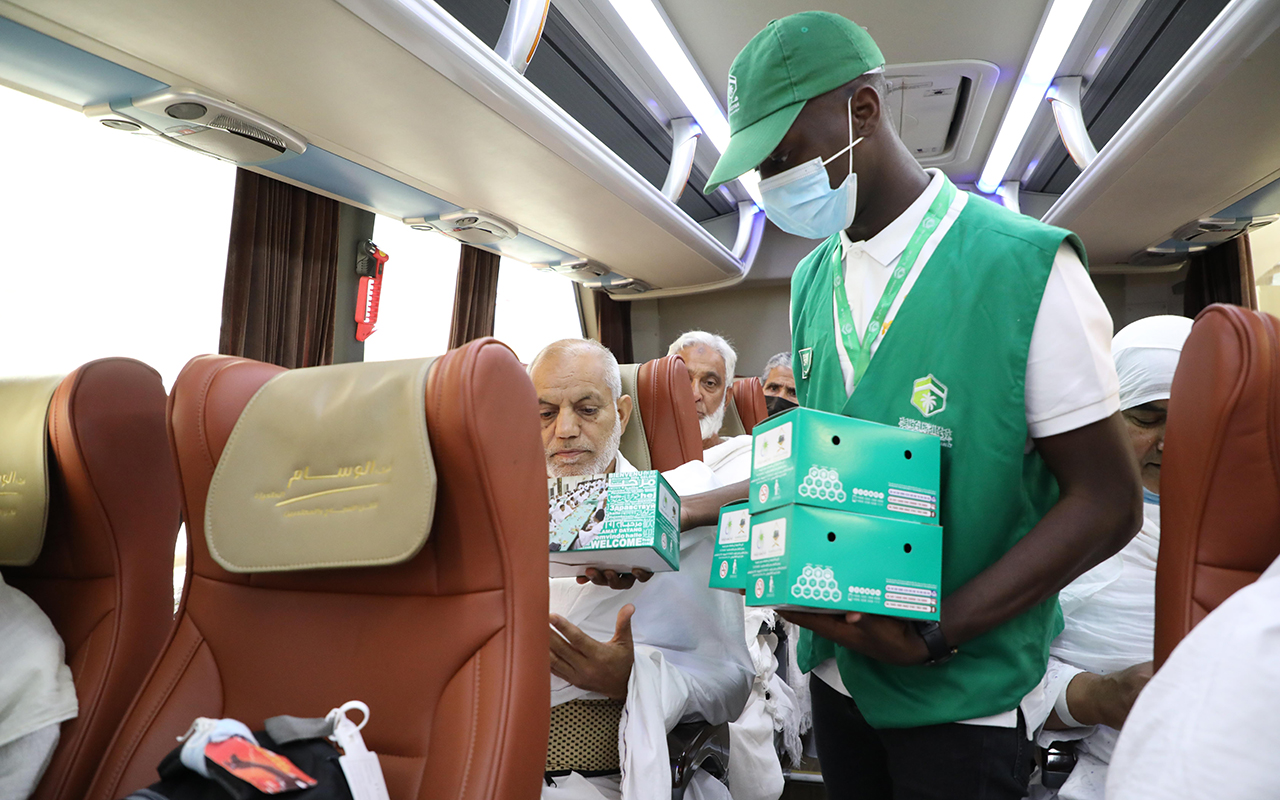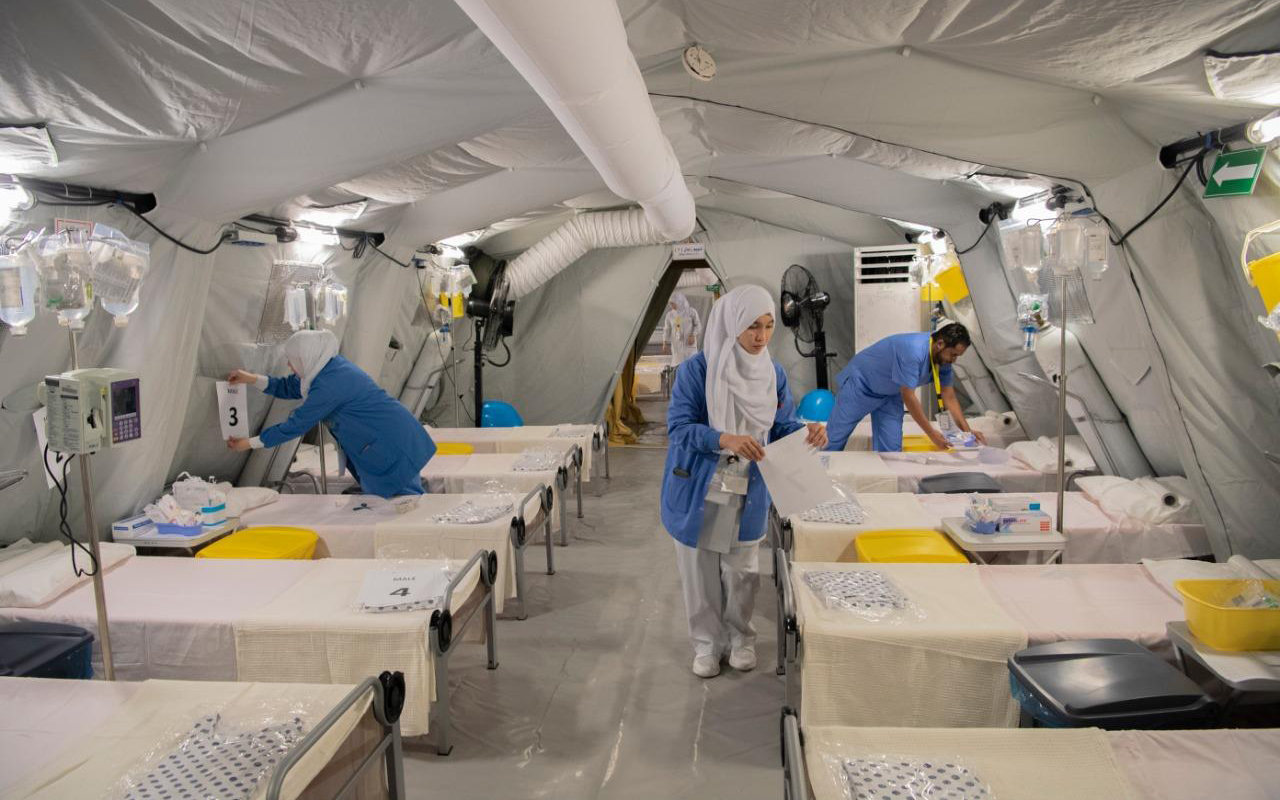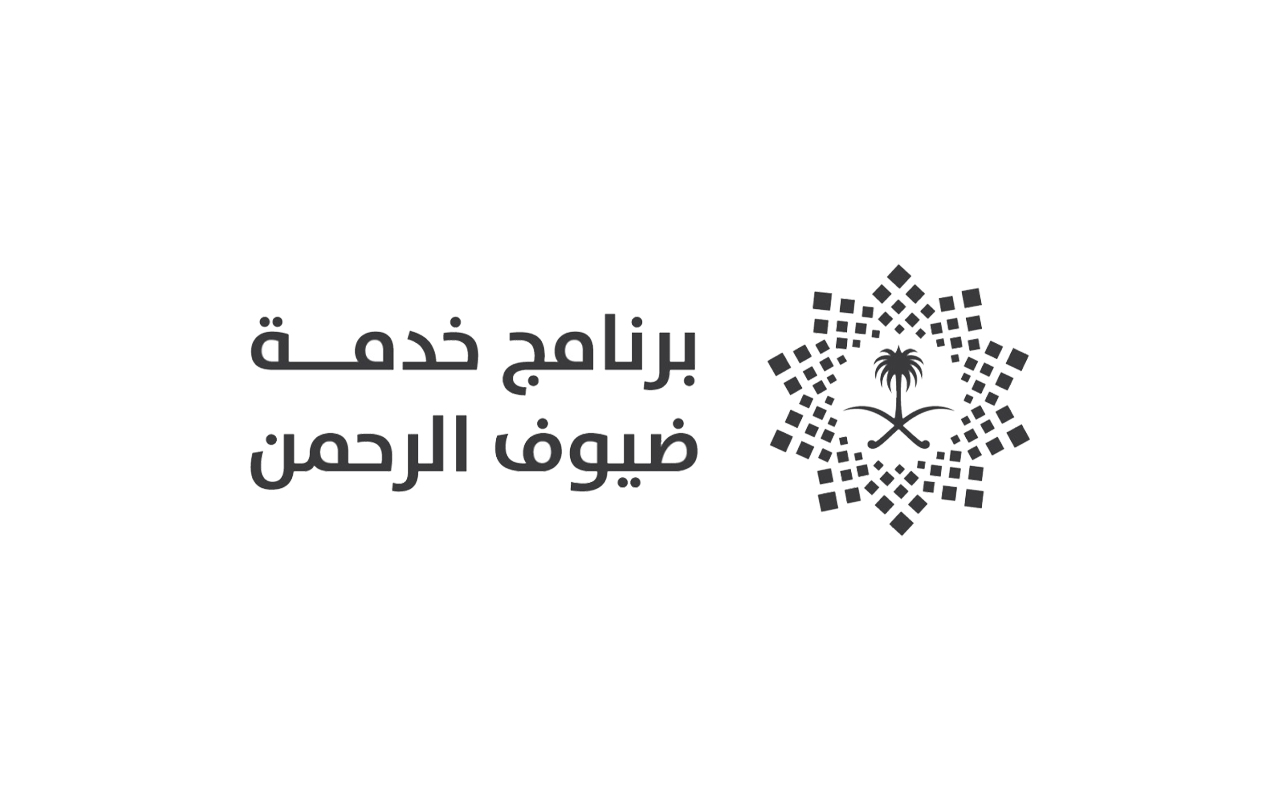Pilgrim Experience Program
The Pilgrim Experience Program is one of the programs to achieve Saudi Vision 2030. It was launched by the Custodian of the Two Holy Mosques, King Salman Bin Abdulaziz Al Saud, in 2019. The program's role is to provide the opportunity for as many Muslims as possible to perform the obligations of Hajj and Umrah pilgrimage optimally. The program has designed the journey of the Hajj and the Umrah pilgrims according to seven main contact points, starting with the pre-arrival point, followed by arrival and departure, then transport, visiting the Two Holy Mosques and the Holy Sites, performing the rites safely and securely, in addition to the hospitality and discovering the Kingdom points.
The program endeavors to bring about a qualitative leap in everything related to serving the pilgrims to the House of Allah. It aims to achieve the global message of Islam, prepare tourist and cultural sites, offer the best services before, during, and after their visits to Makkah al-Mukarramah, al-Madinah al-Munawwarah, and the Holy Sites, and portray a dignified and civilized image of the Kingdom in serving the two Holy Mosques and pilgrims.
Strategic goals of the Pilgrim Experience Program
The Pilgrim Experience Program aims to achieve three direct objectives, which have been focused on in the program's strategy and its initiatives, and they are:
1- Facilitating the hosting of a larger number of Umrah performers and streamlining access to the two Holy Mosques. This is done by enabling more Muslims to come to the Kingdom to perform Umrah, simplifying their arrival procedures, and facilitating the means and options for performing Umrah for various pilgrim categories. This comes in addition to streamlining visa procedures and increasing the capacity to host thirty million by 2030 and fifteen million Umrah performers in 2025, an increase of 77 percent compared to the 8.5 million Umrah performers in 2019, all while ensuring the security and safety of the pilgrims alongside the targeted increase in their numbers.
2- Providing high-quality services to the Hajj and Umrah pilgrims for a comprehensive and smooth experience that ensures the satisfaction of the pilgrims, regardless of their categories and needs. This is achieved through enhancing the performance of entities and elevating the quality of services offered, starting from the pilgrims' home country until their departure from the Kingdom and return to their homeland, encompassing the entirety of their journey within the Kingdom. This involves working to elevate the level of the provided services and their standards, monitor their improvement, and enhance the procedures to ensure their fluidity and ease, such as reducing waiting times and improving the efficiency of crowd management.
3- Enriching the religious and cultural experience of the Hajj and Umrah pilgrims by allowing them to visit Islamic historical and cultural sites in Makkah al-Mukarramah and al-Madinah al-Munawwarah. The program targets qualifying and developing Islamic historical and cultural sites, such as landmarks, mosques, monuments, and historical events, and introducing pilgrims to the local heritage of Makkah al-Mukarramah and al-Madinah al-Munawwarah, in addition to educating pilgrims to expand their journey and explore the Kingdom.

Initiatives of the Pilgrim Experience Program
The Pilgrim Experience Program has developed a practical plan consisting of approximately 130 initiatives, divided into strategic and executive initiatives. These were prepared with the participation of more than thirty government entities. Among these initiatives is an initiative to enhance the efficiency of regulations related to crowd management, such as using mathematical models to anticipate potential human congestion and redirect movement. There's also the smart guidance initiative, which alerts and directs pilgrims at the right times to move and navigate to prevent overcrowding, using artificial intelligence and modern technologies to direct vehicles and pedestrians.
In addition to its main goal of developing services related to rites, the program works to enrich the experience of pilgrims by rehabilitating more than forty historical and archaeological sites and holding interactive exhibitions that simulate the most prominent Islamic historical events, such as the migration route initiative that the pilgrim and the Umrah performer can enjoy visiting and viewing.
Services of the Pilgrim Experience Program
The Pilgrim Experience Program works to provide distinguished services to the pilgrims before their arrival to the Kingdom, enabling them to reduce the time required to issue an entry visa by issuing it electronically upon direct request, without the need to go through the Kingdom's embassies or personally attend to complete the procedures. This comes in addition to developing an electronic platform that allows the visitor to access information about accommodation, transportation, and archaeological sites, and the visitor will be able to book and arrange the itinerary directly through the platform, and developing financial services to provide safe payment solutions.

Achievements of the Pilgrim Experience Program
During its previous phase, the Pilgrim Experience Program, in collaboration with the relevant entities, made many achievements. The most notable achievements were introducing electronic visas for Hajj and Umrah pilgrims from all countries, extending the Umrah season, and launching many technological services, such as the Eyab, Smart Hajj, and Hajj without a Bag initiative, in addition to comprehensive health insurance.
Statistics and numbers about the Pilgrim Experience Program
- Granting electronic visas to Hajj and Umrah pilgrims, reducing the visa processing time for entering the Kingdom to perform Umrah rites from fourteen days down to just five minutes.
- The average waiting time for pilgrims at ports is fifteen minutes, as the Makkah Route initiative has facilitated the entry procedures of pilgrims through the Kingdom's ports.
- Launching the comprehensive health insurance initiative for pilgrims, a national project providing comprehensive coverage (health, accidents, travel) to compensate pilgrims in cases of accidents, disasters, and travel issues.
- A project to develop forty Islamic sites and historical mosques through campaigns to condition and safeguard priority sites, prevent the destruction and erasure of Islamic monuments, and launch the initiative to conserve Jabal Noor and Jabal Thawr.
- Establishing the electronic training platform (Wifadah) to train and qualify workers in the pilgrim service sector to enhance the culture of hospitality and graciousness among the workers in the pilgrim service sector.
